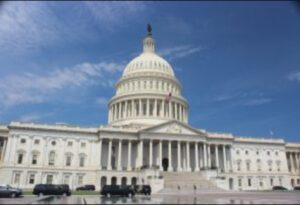Welcome to the Healthy Indoor Consultants Blog.
Resources, recommendations, and articles to help you create the most pure indoor environments in your life.
Preempting Local Government
Preempting Local Government
I find the following article extremely disturbing!!! What I find disturbing is that this bill, if passed, would give telecom companies the right to build cell towers and transmitters anywhere they wanted to without any oversight by local governments. The only arbitrator would be the FCC which along with the Telecom companies that owns them, has shown zero regard for the health impact of cell towers on humans or the environment:
This article was written by Doug Dawson, CCG Consulting, Aug 14, 2023
In May the House Energy and Commerce Committee marked up nineteen pieces of telecom-related legislation, which means the bills can move forward to the full House for a vote. Today’s blog looks at one bill in particular because it represents what I’m seeing as a new trend of actions taken by big ISPs to preempt the authority of local governments.
The bill is H.R. 3557, the American Broadband Deployment Act of 2023. This legislation would preempt a host of current rights of local governments to manage public rights-of-way for telecom infrastructure. This applies to both wireless infrastructure like towers, but also to landline infrastructure like fiber, huts, and cabinets.
The legislation includes a long list of changes aimed at taking local government out of the business of controlling telecom infrastructure deployment.
• The bill establishes a 60-day shot clock for local governments to consider requests for rights-of-way. If the local government doesn’t approve a request within that time, the request is ‘deemed’ to be approved. Further, once a project is deemed to be approved, the carrier or ISP can proceed with construction without further notice to the local government. It appears that would give builders the ability to bypass local inspections, traffic control regulations, etc.
• The legislation would give ISPs and carriers the ability to install facilities anywhere they choose and bypass local zoning rules. This would also eliminate local requirements to hide, conceal, or disguise infrastructure in historic neighborhoods.
• The legislation imposes a complicated formula for calculating and justifying any fees, with the overall goal of greatly lowering fees.
• One of the most intrusive changes is that the legislation would place all disputes at the FCC rather than in local courts. This would force local governments to battle disputes in D.C. rather than locally. This would upset a 35-year long truce between Congress and local governments that allows disputes on local-related issues to be heard in local courts.
• Eliminates cable franchise renewals and eliminates the ability of local governments to require rules such as an ISP having to serve the whole community, the local government requiring PEG channels, or the local government requiring customer service standards.
• The biggest killer is that the law would give holders of franchise agreements the ability to cancel the agreement without losing any rights-of-ways included in the agreement. This would also kill local franchise fees, a major source of revenue for many governments. Perhaps the most severe provision is that franchise contract holders can eliminate any contract provisions they deem to be commercially infeasible.
There is a mountain of bills in the House this year, and there is no way to know the chances of this coming for a vote. However, there are several telecom bills that have bipartisan support, and bills like this one could be attached to such bills. This includes a bill that would renew the FCC’s authority to hold spectrum auctions and a bill that would stop federal grant funding for broadband infrastructure from being taxable.
To me, this bill is part of an ongoing effort of cellular carriers, cable companies, and big Telcos to restrict the ability of local governments to affect the construction of infrastructure. These big companies have already been successful in recent years in eliminating regulation. The cellular companies already got relief from the Ajit Pai FCC that made it a lot easier to place cell sites. This law would codify that change so that a future FCC can’t change it. The large ISPs were successful in getting the Ajit Pai FCC to eliminate most broadband regulations.
This bill is going for a home run to eliminate local regulations these big companies don’t like. I’ve written recently about regulatory capture, and this is an ultimate example of changing the laws to get what the big monopoly providers want. This law would eliminate franchise fees, allow carriers to put infrastructure anywhere they want, and pay low fees in doing so.
More proof of the degree of regulatory capture in the telecom market is that there are no equivalent efforts to change local government control of other kinds of infrastructure like roads, factories, buildings, etc. This bill is the ultimate example of the biggest companies in telecom flexing their power and influence to bypass some of the last vestiges of regulation.
Be the first to comment
